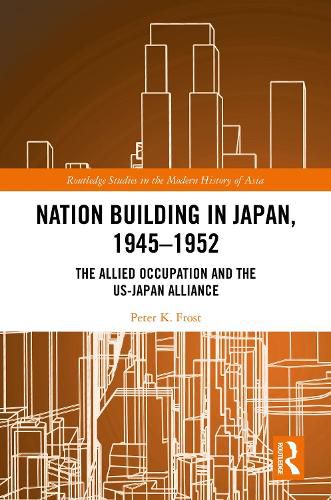Readings Newsletter
Become a Readings Member to make your shopping experience even easier.
Sign in or sign up for free!
You’re not far away from qualifying for FREE standard shipping within Australia
You’ve qualified for FREE standard shipping within Australia
The cart is loading…






This book analyzes the Allied Occupation of Japan (1945-1952). It begins by explaining why Japan spent roughly fifty years building its own colonial system and declaring war on China and the Western Allies, only to decide after military defeats, two atomic bombings and the Soviet declaration of war, to surrender before being invaded. It goes on to describe the controversial issues surrounding the conduct of the Occupation forces, the largely American reform proposals and the shifts in policy as the Cold War developed. Particular emphasis is placed on women's issues, the Japanese and American reactions to President Truman's decision to fire General Douglas MacArthur, the tensions surrounding the requirement that the Japanese allow US military bases to stay in Japan and the still ongoing debate over the American decision to drop two atomic bombs on Japan. Despite all this, the book concludes that particularly when compared with later Allied nation building efforts in Vietnam, Afghanistan and Iraq and the current state of US politics, the Occupation experience was, on the whole, a relatively positive one for both the Japanese and the US-Japan alliance.
$9.00 standard shipping within Australia
FREE standard shipping within Australia for orders over $100.00
Express & International shipping calculated at checkout
Stock availability can be subject to change without notice. We recommend calling the shop or contacting our online team to check availability of low stock items. Please see our Shopping Online page for more details.
This book analyzes the Allied Occupation of Japan (1945-1952). It begins by explaining why Japan spent roughly fifty years building its own colonial system and declaring war on China and the Western Allies, only to decide after military defeats, two atomic bombings and the Soviet declaration of war, to surrender before being invaded. It goes on to describe the controversial issues surrounding the conduct of the Occupation forces, the largely American reform proposals and the shifts in policy as the Cold War developed. Particular emphasis is placed on women's issues, the Japanese and American reactions to President Truman's decision to fire General Douglas MacArthur, the tensions surrounding the requirement that the Japanese allow US military bases to stay in Japan and the still ongoing debate over the American decision to drop two atomic bombs on Japan. Despite all this, the book concludes that particularly when compared with later Allied nation building efforts in Vietnam, Afghanistan and Iraq and the current state of US politics, the Occupation experience was, on the whole, a relatively positive one for both the Japanese and the US-Japan alliance.